Year 6
The English curriculum is built around the three interrelated strands of language, literature and literacy. Teaching and learning programs should balance and integrate all three strands. Together, the strands focus on developing students' knowledge, understanding and skills in listening, reading, viewing, speaking, writing and creating. Learning in English builds on concepts, skills and processes developed in earlier years, and teachers will revisit and strengthen these as needed.
In Years 5 and 6, students communicate with peers and teachers from other classes and schools, community members, and individuals and groups, in a range of face-to-face and online/virtual environments.
Students engage with a variety of texts for enjoyment. They listen to, read, view, interpret and evaluate spoken, written and multimodal texts in which the primary purpose is aesthetic, as well as texts designed to inform and persuade. These include various types of media texts including newspapers, film and digital texts, junior and early adolescent novels, poetry, non-fiction and dramatic performances. Students develop their understanding of how texts, including media texts, are influenced by context, purpose and audience.
The range of literary texts for Foundation to Year 10 comprises Australian literature, including the oral narrative traditions of Aboriginal and Torres Strait Islander Peoples, as well as the contemporary literature of these two cultural groups, and classic and contemporary world literature, including texts from and about Asia.
Literary texts that support and extend students in Years 5 and 6 as independent readers describe complex sequences, a range of non-stereotypical characters and elaborated events including flashbacks and shifts in time. These texts explore themes of interpersonal relationships and ethical dilemmas within real-world and fantasy settings. Informative texts supply technical and content information about a wide range of topics of interest as well as topics being studied in other areas of the curriculum. Text structures include chapters, headings and subheadings, tables of contents, indexes and glossaries. Language features include complex sentences, unfamiliar technical vocabulary, figurative language, and information presented in various types of graphics.
Students create a range of imaginative, informative and persuasive types of texts such as narratives, procedures, performances, reports, reviews, explanations and discussions.
(source: www.australiancurriculum.edu.au)
Achievement Standard
Receptive modes (listening, reading and viewing)
By the end of Year 6, students understand how the use of text structures can achieve particular effects. They analyse and explain how language features, images and vocabulary are used by different authors to represent ideas, characters and events.
Students compare and analyse information in different and complex texts, explaining literal and implied meaning. They select and use evidence from a text to explain their response to it. They listen to discussions, clarifying content and challenging others' ideas.
Productive modes (speaking, writing and creating)
Students understand how language features and language patterns can be used for emphasis. They show how specific details can be used to support a point of view. They explain how their choices of language features and images are used.
Students create detailed texts elaborating on key ideas for a range of purposes and audiences. They make presentations and contribute actively to class and group discussions, using a variety of strategies for effect. They demonstrate an understanding of grammar, and make considered vocabulary choices to enhance cohesion and structure in their writing. They use accurate spelling and punctuation for clarity and make and explain editorial choices based on criteria.
(source: www.australiancurriculum.edu.au)
- Plus Plan
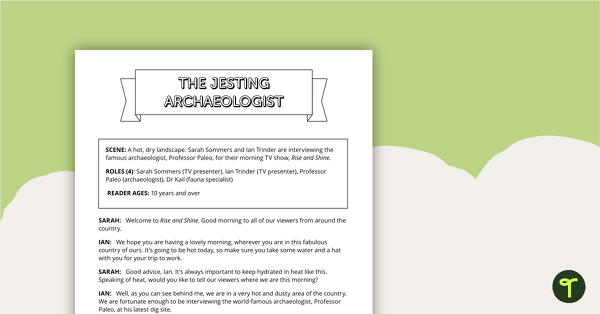
Readers' Theatre Script - Jesting Archaeologist
A script which can be used during readers' theatre or Drama sessions, aimed at students 10 years and over.
- Plus Plan
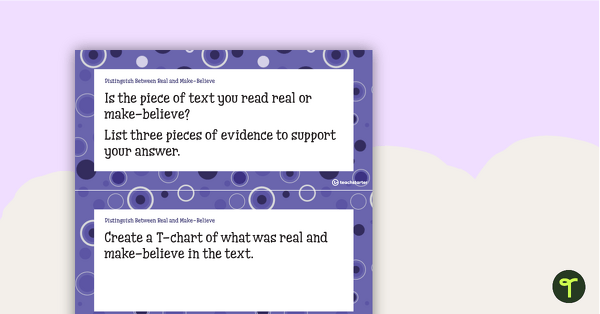
120 Comprehension Strategy Question Cards
A set of 120 open-ended question cards to help students apply comprehension strategies when reading.
- Plus Plan
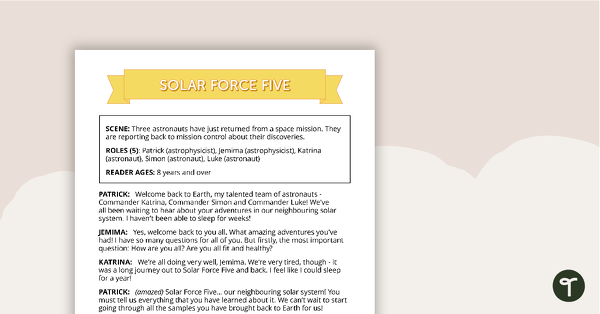
Comprehension - Solar Force Five
A fun script and set of questions to help students develop reading and comprehension strategies.
- Plus Plan
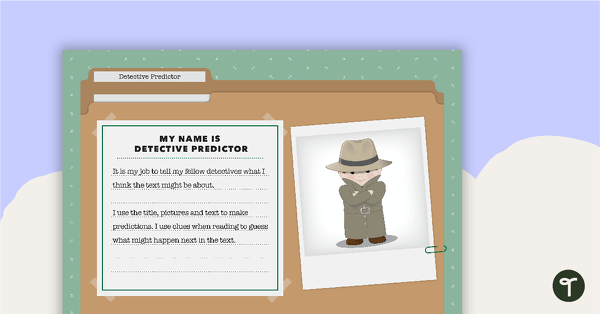
Reading Detectives Resource Pack
A 16 page resource pack including 8 detective roles to assign to students during guided reading sessions.
- Plus Plan
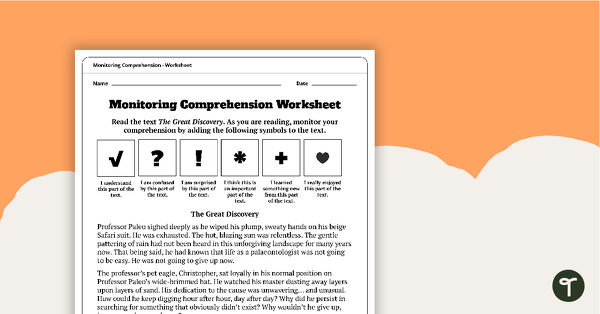
Monitoring Comprehension Worksheet
A 2 page worksheet focusing on the reading comprehension strategy of monitoring.
- Plus Plan
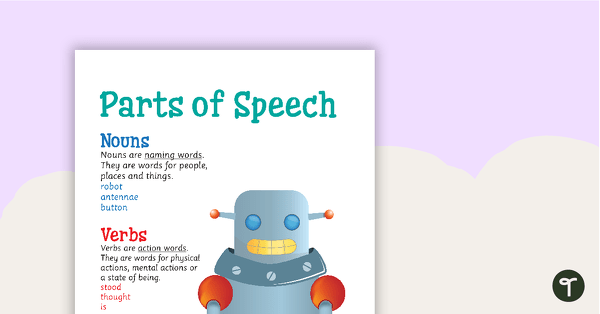
Parts of Speech Poster
A poster introducing students to nouns, verbs, adjectives, adverbs, and adverbial phrases.
- Plus Plan
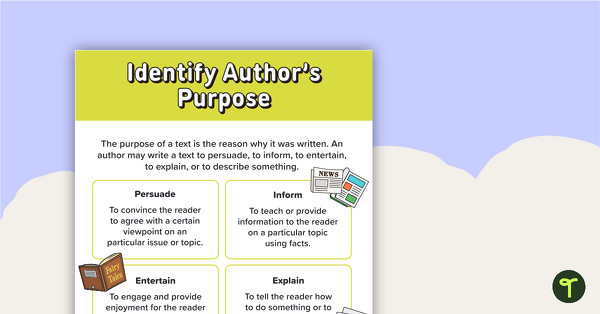
Identify Author's Purpose Poster
A poster highlighting how to identify the author's purpose when reading a piece of text.
- Plus Plan
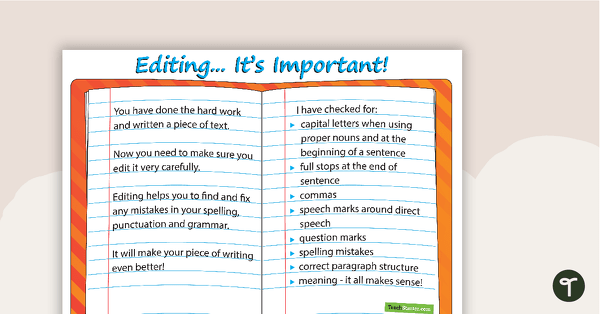
Editing Poster
A poster outlining how to edit a piece of writing.
- Plus Plan
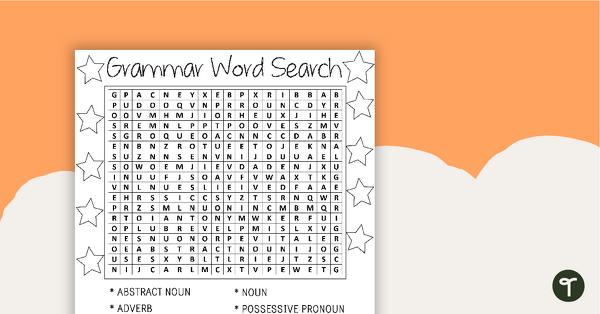
Grammar Word Search with Solution
A word search to help your students learn a variety of grammatical terms.
- Plus Plan
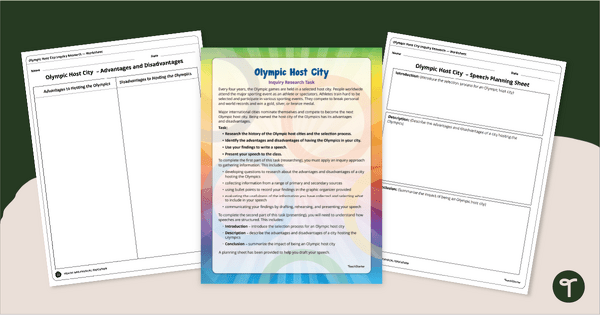
Olympic Host City Project - Speech Writing Task
Explore the advantages and disadvantages of being the host city for the Olympics in this 3-page inquiry and speech-writing task.
- Plus Plan
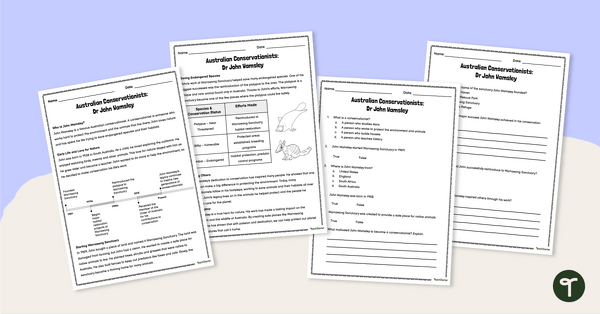
Australian Conservationists: John Walmsley – Comprehension Worksheet
Learn about Dr John Walmsley and his conservation work with this 2-page reading passage and accompanying comprehension questions.
- Plus Plan
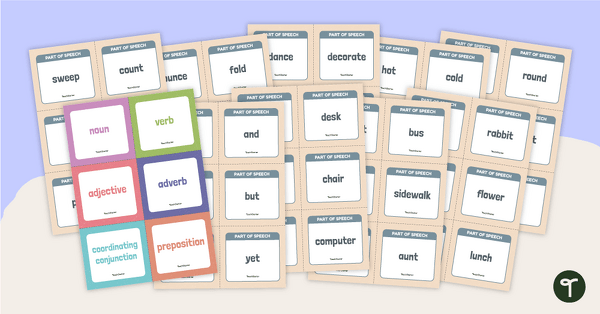
Parts of Speech Word Cards Sorting Activity
Engage your students with this parts of speech group activity where they sort 112 word cards into categories (nouns, verbs, adjectives, adverbs, coordinating conjunctions or prepositions).
- Plus Plan
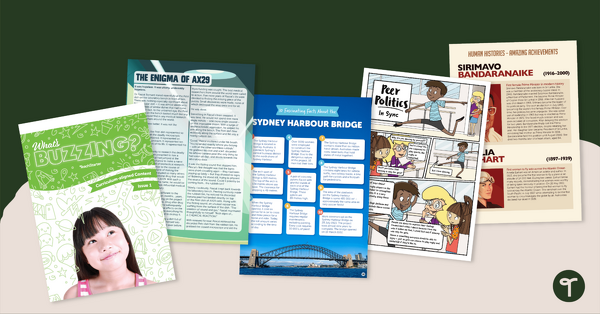
Year 6 Magazine - What's Buzzing? (Issue 1)
A beautifully designed, 26-page reading magazine specifically designed for Year 6 students.
- Plus Plan
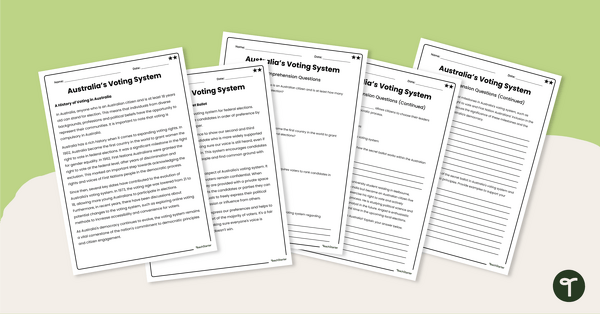
Australia's Voting System – Comprehension Worksheets
Explore the history and systems of voting in Australia with this differentiated reading comprehension activity.
- Plus Plan
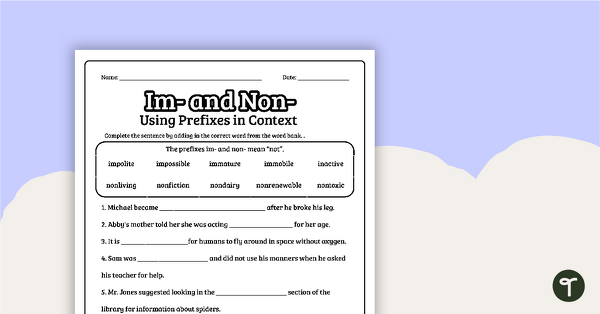
Im- and Non- Prefixes Worksheet
Consolidate students' understanding of im- and non- prefixes with a prefix worksheet.
- Plus Plan
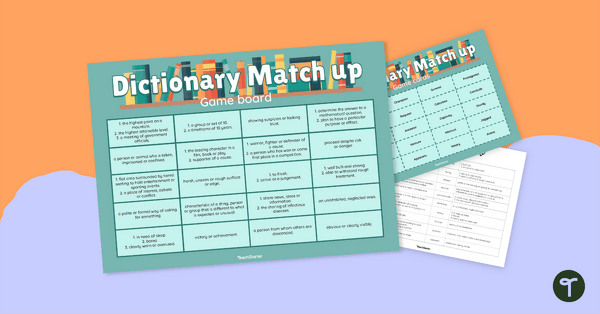
Dictionary Definitions Match Up Game
A set of 20 word cards for students to match to their definition.
- Plus Plan
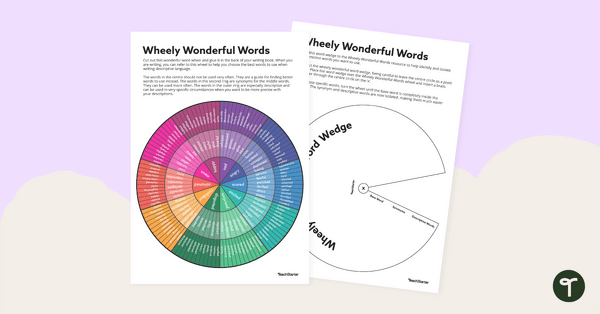
Wheely Wonderful Words – Emotional States Vocabulary
A word wheel of synonyms and similar words used to describe emotional states.
- Plus Plan
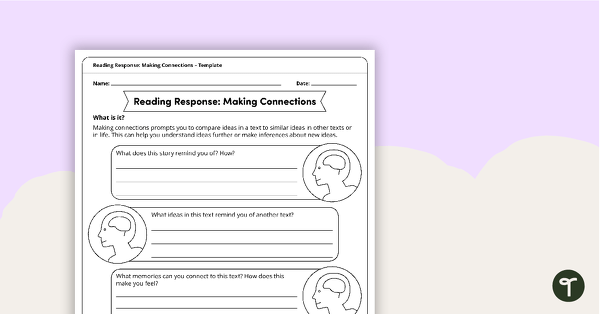
Reading Response Making Connections – Template
A comprehension template for students to learn how to make connections.
- Plus Plan
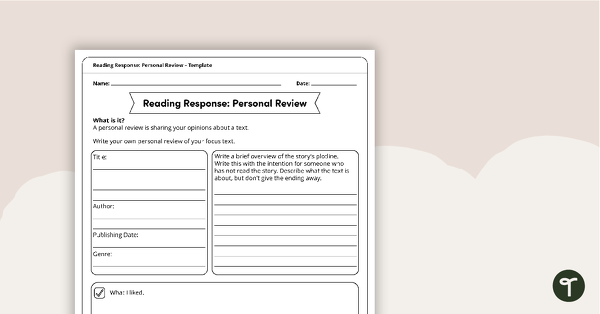
Reading Response Personal Review – Template
A comprehension template for students to write a text review about what they have been reading.
- Plus Plan
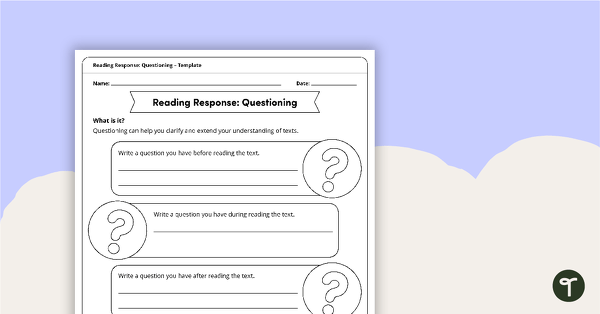
Reading Response Questioning – Template
A comprehension template for students to practise questioning.
- Plus Plan
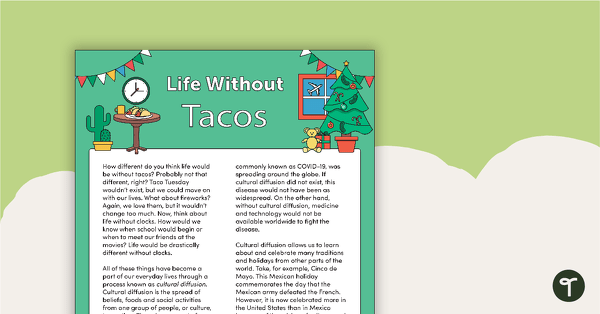
Life Without Tacos – Comprehension Task
A comprehension passage and accompanying worksheet about cultural diffusion.
- Plus Plan
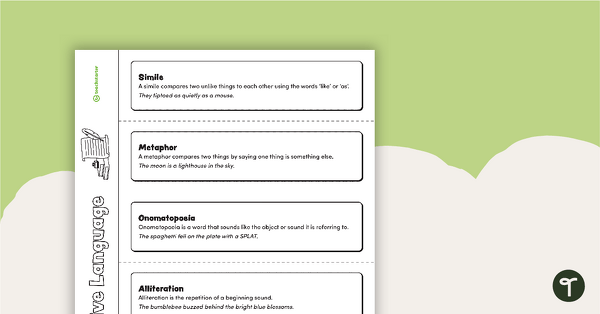
Figurative Language Flip Book
A flip book template for students to identify examples of figurative language.
- Plus Plan
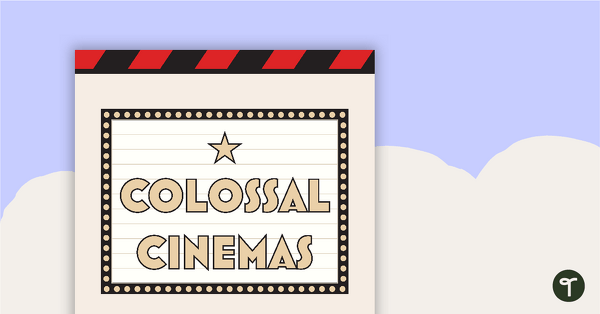
Colossal Cinemas: Which Flavour Will Be Popular? – Project
A project in which students design and write a persuasive advertisement for their own popcorn flavour as well as a 3D popcorn container.
- Plus Plan
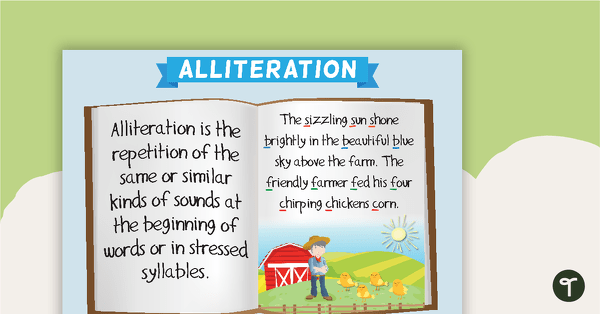
Alliteration Poster
A poster providing a definition and examples of alliteration.
- Plus Plan
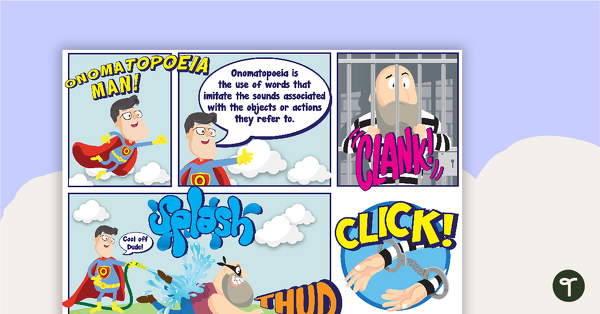
Onomatopoeia Man Poster
A poster providing a definition and examples of onomatopoeia.
- Plus Plan
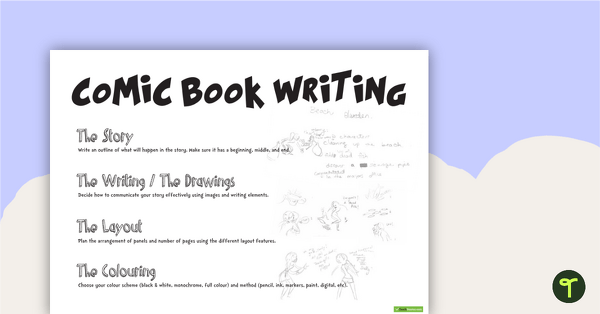
Comic Book Writing Resource Pack
9 pages of resources for creating comic books.
- Plus Plan
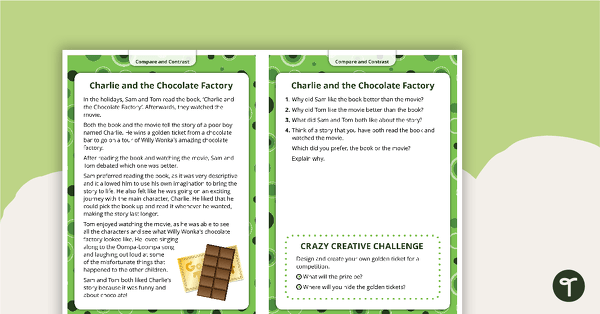
Comprehension Task Cards - Compare And Contrast
A set of comprehension task cards to help students compare and contrast when reading.
- Plus Plan
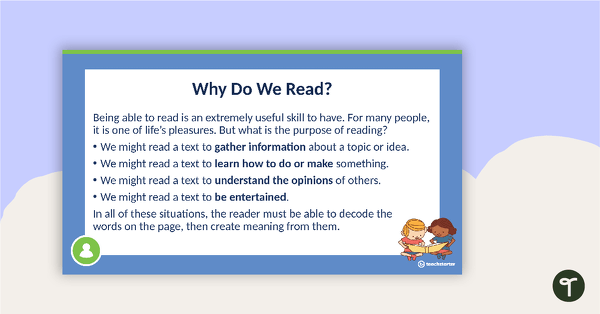
Reading Comprehension Strategies PowerPoint - Predicting
A 14 slide editable PowerPoint template explaining the reading comprehension strategy of predicting.
- Plus Plan
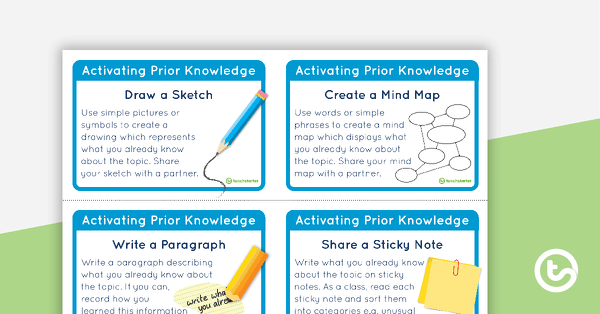
Activating Prior Knowledge - Comprehension Strategy Task Cards
A set of 12 task cards to help students activate their prior knowledge before reading.
- Plus Plan
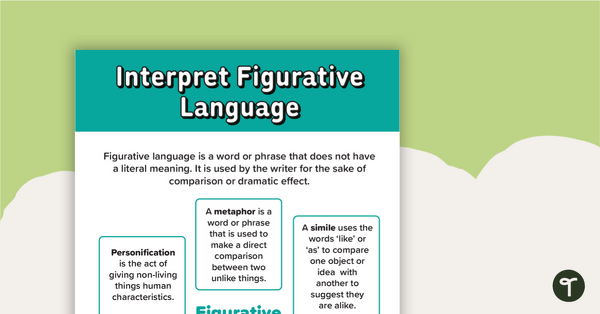
Interpret Figurative Language Poster
Provide students with a visual reminder of the types of figurative language with this classroom display poster.
- Plus Plan

Paragraph Study Grammar Interactive PowerPoint
Interactive PowerPoint presentation allowing teachers and students to learn and revise grammar by highlighting paragraphs.
- Plus Plan
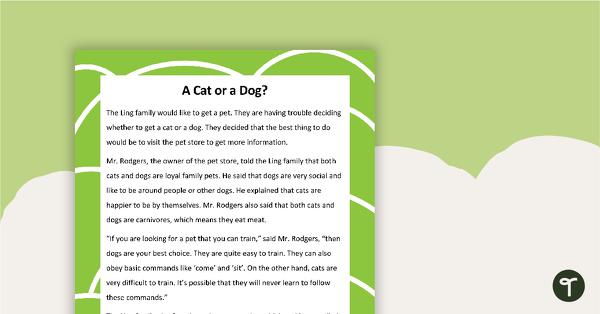
Compare and Contrast - Comprehension Task
A task to use when teaching your students reading comprehension strategies.